All cats get ill and need regular trips to the vets. But some conditions will need specialist care. Here, Anderson Moores Veterinary Specialists take you through some of the most common conditions that will require a specialist.
Our cats are very precious to us, they are part of our homes, our lives, and our families; they bring joy and fun but when they are in pain or injured, it can bring anxiety and worry.
Looking after your cat at home is easy when they are well, giving them nutritious food, fuss and love and engaging with them by playing. However, when your cat or kitten is ill or injured you want to know they are treated with the best possible care and expertise.
Professional care
Your vet is there as your first port of call - supported by amazing nurses - to give you advice on nutrition, vaccinations, toothbrushing and daily care of your pet, as well as any symptoms you are worried about.
When your cat experiences a disease or injury that requires more specialist care, then your vet will refer them to a referral hospital, like you visiting a consultant in a private hospital – there isn’t an NHS for pets!
Within these hospitals, such as Anderson Moores Veterinary Specialists in Hampshire, there are different specialist departments, (again like a human hospital), from accident and emergency, orthopaedics, cardiology and neurology through to medicine and surgery. Within these departments there are trained specialists who go through long and intense training to gain that expertise as well as teams of dedicated, experienced nurses, patient care assistants and technicians.

Here are a few conditions, on top of fractures or obvious significant injuries or diseases, that may require referral to a specialist hospital:
Diabetes, like in humans, is a condition where your cat has high blood glucose (sugar). If you notice them drinking more water, urinating more, or if they have a change in appetite, or a sudden increase or decrease in weight, then it’s always worth seeing your vet for blood and urine tests. As well as diabetes these signs could also be an indication of overactive thyroid disease (hyperthyroidism) so it’s worth getting your pet checked out. Click here to find out more about these diseases.
Feline hyperthyroidism is a common endocrine (hormonal) disease generally evident in cats over 8 years old and is caused by an excessive amount of thyroid hormone. It can affect up to 10% of the feline population. There are four treatment options including surgery; medication; a restricted diet and then for most cats the ‘gold standard’ treatment option is radioactive iodine therapy (131I). This option is non-invasive and low risk compared to surgery and removes the need for daily medication, diet change and frequent vet visits. It’s successful in 95% of cats.
Click here to find out more, or to read about the experience of one cat owner please click here.

If you are interested in learning more, a study that has recently been published in the Journal of Feline Medicine and Surgery written by Matt Gurney, Hospital Director at Anderson Moores Veterinary Specialists, and Lou Gower, a Registered Veterinary Nurse who specialises in cats, found that if hyperthyroid cats were given a drug called gabapentin an hour before leaving home, they were more relaxed during their journey and happier being at the vets. Click here to read more.
Heart problems, cat and dogs can have similar heart problems to humans and a heart murmur is one of the most common conditions. If your vet finds a heart murmur in your kitten or puppy it is worth getting a referral to see if it is a condition that can be treated so that they have a long and happy life without the debilitating issue. Two congenital (present from birth) heart defects are patent ductus arteriosus (a hole in the blood vessels close to the heart and pulmonic stenosis (stiffened heart valves). These can be treated before your pet experiences symptoms that can affect their lives.
In older cats, the symptoms of heart conditions can be unusual. Hobb’s owners took him to Anderson Moores Veterinary Specialists, as he was suddenly paralysed in his back legs, and they couldn’t find an injury. He was diagnosed with Hypertrophic Cardiomyopathy (heart muscle disease), Congestive Heart Failure (fluid in his lungs and around his heart) and Feline Arterial Thromboembolism (a blood clot)! You can read Hobb’s story here.
Epilepsy, like in humans this can be visible as fitting (seizures) in cats (or dogs). These fits could be caused by an underlying issue or be idiopathic (no identifiable cause). They can generally be controlled with medication. It can make your pet’s life (and yours) much more predictable and happier if you can find out if there is a cause using advanced technology such as an MRI scan. Knowing the underlying cause ensures it can be treated in the best possible way. To read some top tips for how to deal with an epileptic pet please click here.
Managing pain
As your cat gets a little older, you may notice their mobility is reduced, they could be less interested in playing, jump up less. This could just be getting older, but it could be a sign of osteoarthritis.
Osteoarthritis
Cats are very good at hiding pain, but recent studies show that around 40% of all cats have clinical signs of osteoarthritis and for cats over 12 years old that rises to 90% where there is evidence of the disease in an x-ray. That is nearly double that seen in dogs. Click here for a pain checklist.
If conventional pain medications are not working, or not being tolerated by your pet, and you are at the point where you don’t know what to do next to help them, then you can consider referral to a pet physiotherapy service or a specialised pain clinic.
Anderson Moores Veterinary Specialist’s dedicated Pain Clinic for pets, run by specialist anaesthetists who are experts in pain control, can produce an individual plan to manage any short or long-term pain your cat (or dog) may be in.
A Pain Clinic consultation may be useful for a wide range of other conditions as well as osteoarthritis, such as chronic painful diseases like intervertebral disc disease or pancreatitis, as well as during recovery from orthopaedic (bone) or other surgeries.

Special care for cats
It can be very daunting if you have to bring your pet to a hospital, and leave them overnight, so it is reassuring to know that hospitals like Anderson Moores Veterinary Specialists have dedicated teams whose job it is to ensure that patients are treated like they are their own pets. Anderson Moores Veterinary Specialists for example have a dedicated Patient Experience Team (PET) who are committed to reviewing the experience of the pets with some experienced veterinary nurses being ‘cat advocates’. Some of the special things they do for cats include having a separate cat waiting area with blankets infused with a relaxing spray to cover the basket, as well as separate cat wards. In 2023 they are expanding their hospital with larger, better designed cat wards and should become Gold ISFM Cat Friendly accredited. ISFM also provide a lot of cat friendly resources, please click here to find out more.
![]() Meet the team
Meet the team
To meet the Anderson Moores Veterinary Specialists PET team, and learn what they do, please click here.
Your cat can have a happy, pain-free and fulfilled life if you are aware of their subtle behaviour changes and the options available for you to care for them in the best possible way.

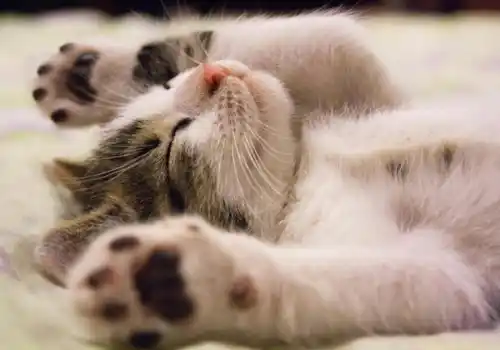
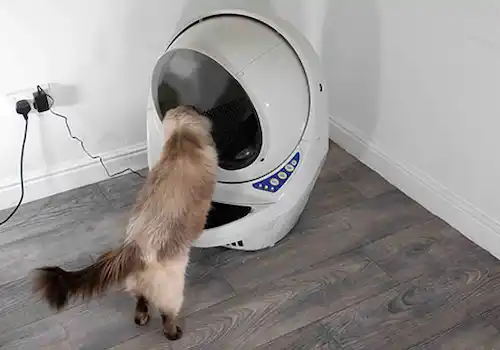
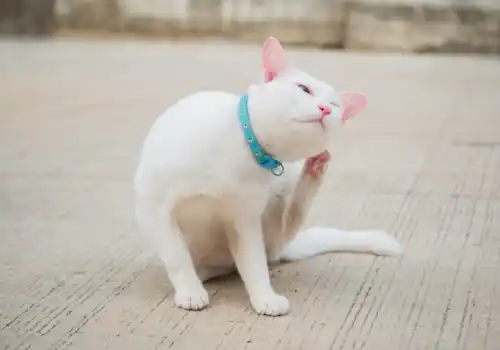
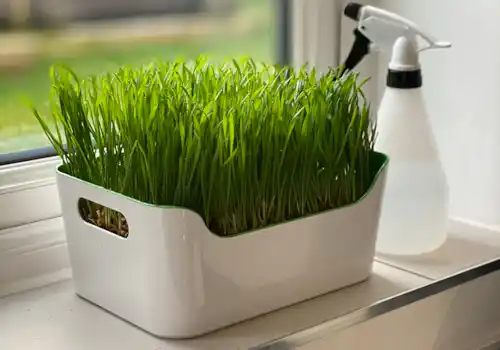
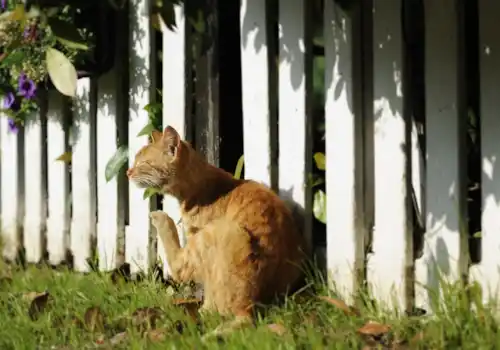
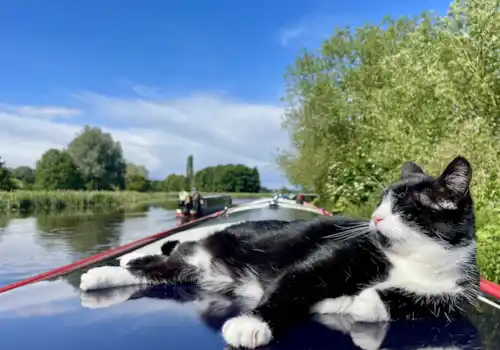

 Meet the team
Meet the team